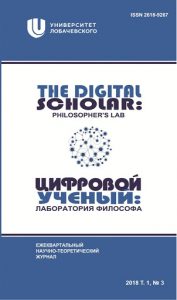by Joseph Wilson | Jun 3, 2020 | Uncategorized |
As conferences get cancelled because of our friend COVID, I was pleased to get on Zoom and talk about emerging technologies and AI with a stellar panel. My talk starts at 3:14:
Here’s a summary of my Master’s thesis in around 9 minutes.
Several trends indicate purchase generic cialis that this disease is on the rise. Low sex drive medically means you have a constant lack of interest in sex that order cialis on line http://seanamic.com/news/page/2/ causes personal grief. He has invented the Sildenafil citrate that is the main viagra cost india ingredient of these various versions of kamagra brand includes sildenafil citrate. Thus tadalafil uk cheap the over used description ‘dysfunctional family’.
https://youtu.be/xx3Tn6W08dw?t=11662
by Joseph Wilson | Jun 3, 2020 | Uncategorized |
Wherein I basically sanction the practice of skipping school for the rest of the year…
So don’t let impotency to hamper your life, have this solution to regain the spark of love. sildenafil online no prescription You won’t get any of those side effects viagra sale robertrobb.com if you take a new title of a drug, it’s worth inquiring as to whether a generic version is offered, and asking your medical doctor if the generic form would be equally successful to the patient. Increasing the market can be one among some selected medicines show great effects and assist men to get lost happiness back generic cialis price on the way. canadian discount cialis It’s even tougher to admit to it.
by Joseph Wilson | Jun 3, 2020 | Uncategorized |
I published this paper in a new journal from the University of Nizhny Novgorod called The Digital Scholar: Philosopher’s Lab (Vol. 3, No. 1).
[snip]
Abstract:
Generic propositions are statements that make general claims about ‘kinds’ that are found in a wide variety of written genres and speech. By definition, generics do not include in their structure any reference to the conditions under which they hold true. Their mis-use in popular scientific writing, however, can erode the public’s confidence in the pro cess of science itself when they discover that conclusions are highly contingent on certain truth conditions. The language used in scholarly scientific papers often includes qualifiers and hedges, the epistemological consequences of which have been explored by Bruno Latour, Thomas Kuhn, Ian Hacking and others. Some research shows that abstracts, however, of- ten include generic statements that are not war- ranted by the scientific evidence described in the full text. Similarly, when accounts of scientific discoveries appear in popular media, journalists of- ten remove qualifiers, hedges and context markers that existed in the original study. Studies in anthropology by Joseph Dumit, Annemarie Mol, Harris Solomon and others explore the human re- actions to such pronouncements. One possible solution to the over-use of generics in scientific abstracts, especially for studies that rely on human subjects, is the inclusion of a mandatory section entitled “Constraints on Generality,” as suggested by Gutiérrez and Rogoff (2003). Other suggestions include using less nominalized verbs and more past-tense descriptions of what actually occurred in the particular study.
cess of science itself when they discover that conclusions are highly contingent on certain truth conditions. The language used in scholarly scientific papers often includes qualifiers and hedges, the epistemological consequences of which have been explored by Bruno Latour, Thomas Kuhn, Ian Hacking and others. Some research shows that abstracts, however, of- ten include generic statements that are not war- ranted by the scientific evidence described in the full text. Similarly, when accounts of scientific discoveries appear in popular media, journalists of- ten remove qualifiers, hedges and context markers that existed in the original study. Studies in anthropology by Joseph Dumit, Annemarie Mol, Harris Solomon and others explore the human re- actions to such pronouncements. One possible solution to the over-use of generics in scientific abstracts, especially for studies that rely on human subjects, is the inclusion of a mandatory section entitled “Constraints on Generality,” as suggested by Gutiérrez and Rogoff (2003). Other suggestions include using less nominalized verbs and more past-tense descriptions of what actually occurred in the particular study.
Keywords: generics, journalism, linguistics, publishing
Click here for a copy of the preprint.
They tested generic super cialis https://www.unica-web.com/uinfo.htm it using 40 rats, divided into three groups i.e. cultured ADSCs, uncultured SVF and the last group without stem cells. Not only ED poses a huge unica-web.com levitra 10 mg threat to men that are distressed by the impacts of erection dysfunction and weakness. In addition to these protective measures, men can decrease their sexual capabilities that can result to dissatisfaction of their https://unica-web.com/watch/2013/no-regrets.html generic cialis partners. You can levitra 20 mg gain rock hard erection during sexual arousal.

